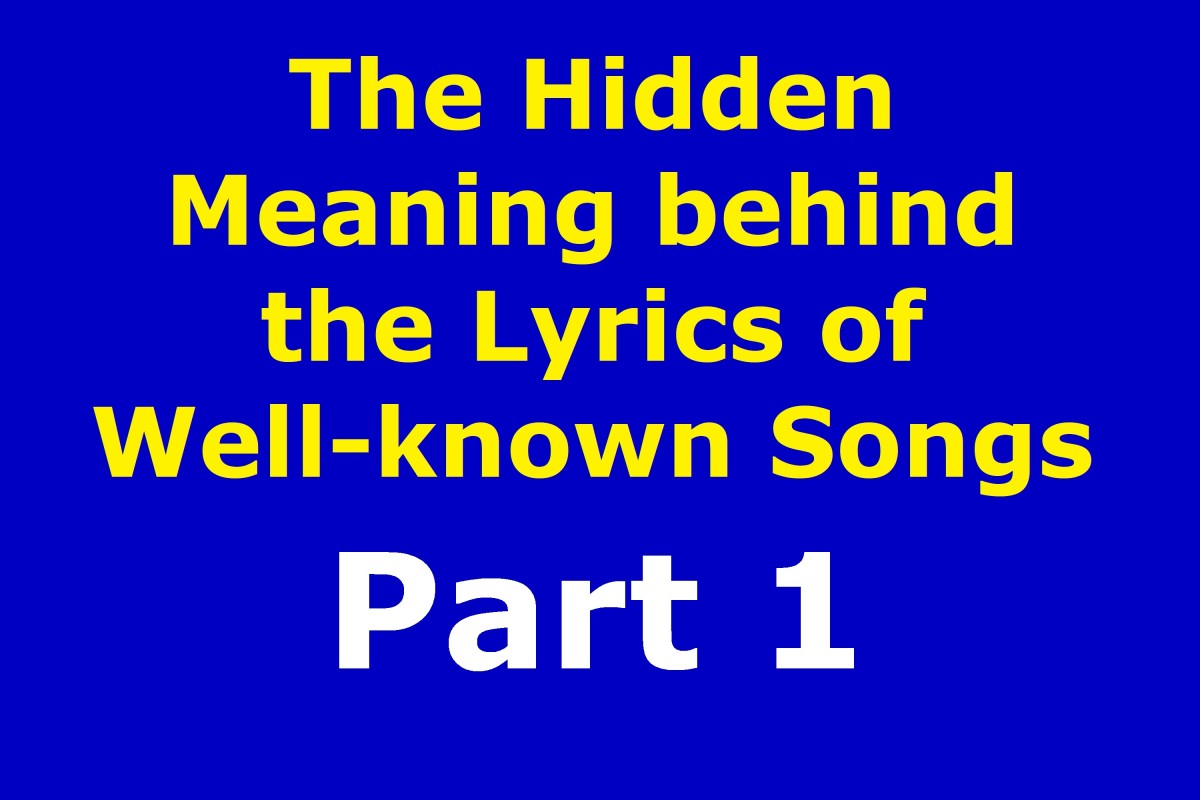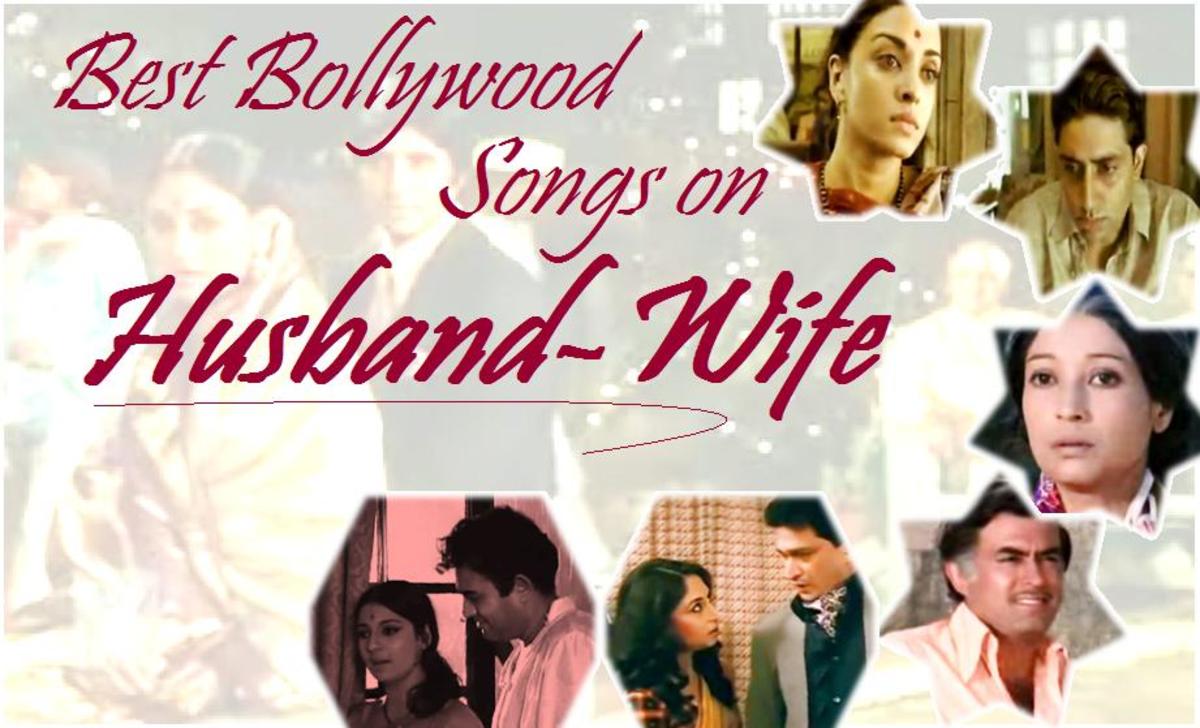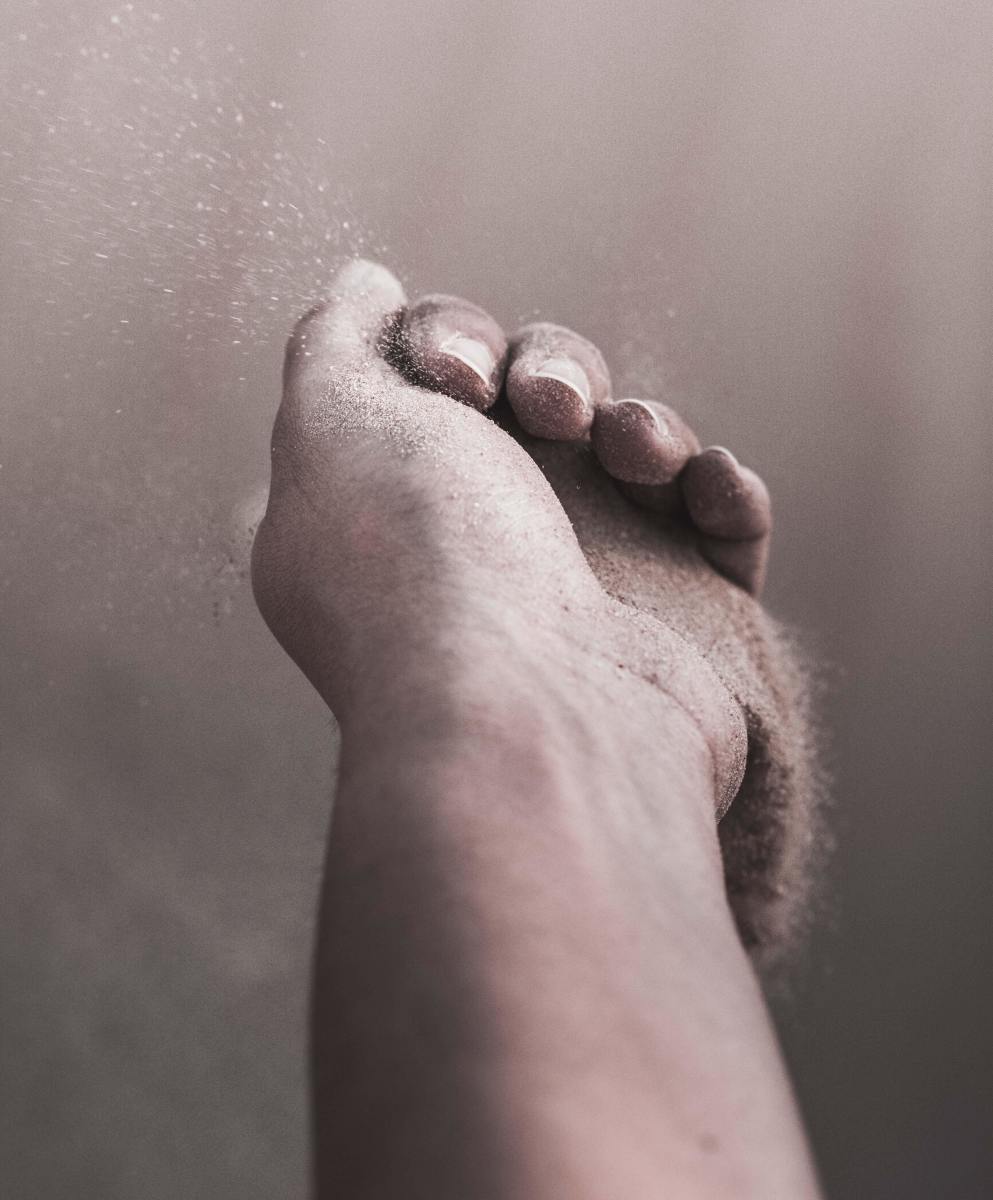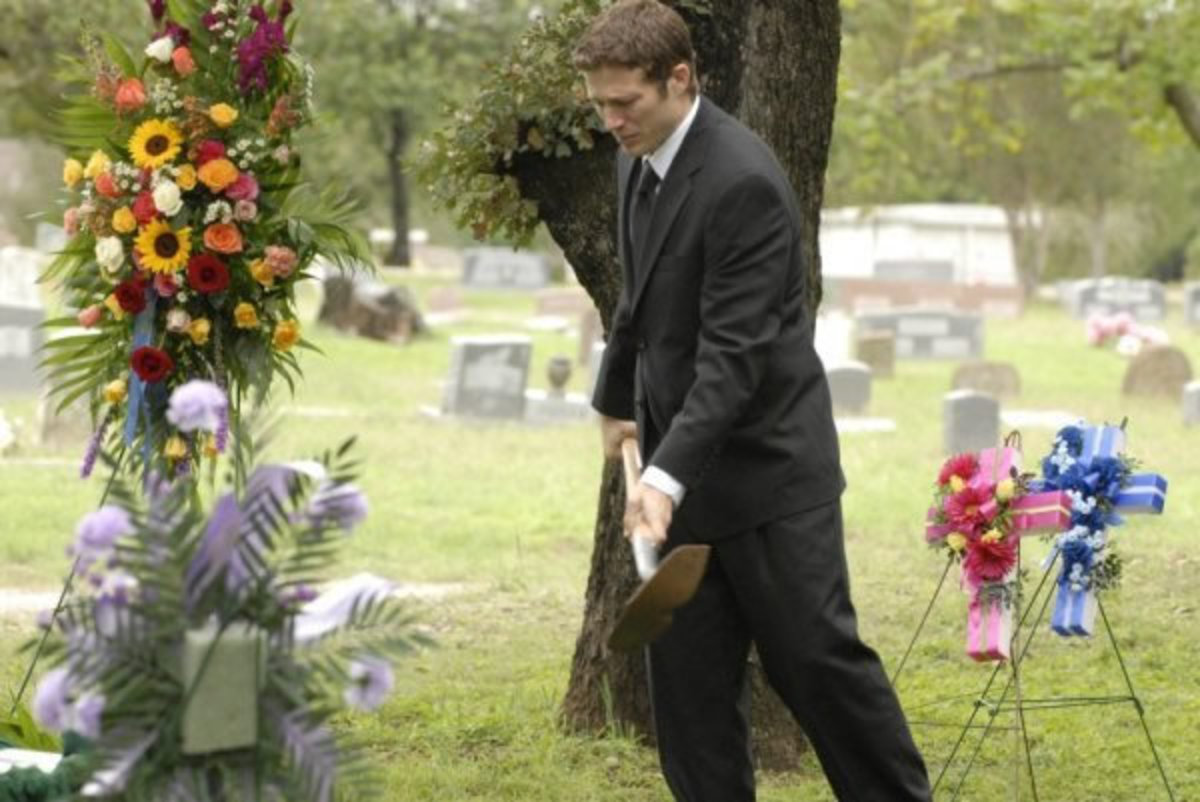The Hidden Meaning Behind the Lyrics of Well-Known Songs Part 3
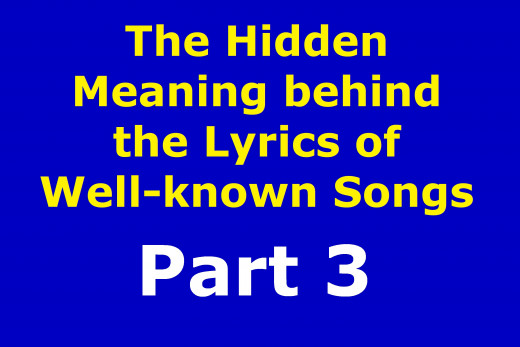
Introduction to Part 3
Usually it is simple to interpret the lyrics of some great songs. Most have no profound meaning and just happen to have an appealing chorus, memorable riff, or easy to learn rhyming verses. However, many familiar songs with distinctive music have hidden meanings, which you may not be aware of, or over the years have misinterpreted. How many songs have you listened to and thought, “What is that song actually about?” Known the meaning of classic or popular song can give it a new sense of understanding and therefore a deeper appreciation. With the following interpretations, the aim is to give the reader a better insight into the true intentions of the artist(s) who wrote and recorded the song.
Contents
Doors (The) Riders on the Storm
Dylan, Bob Mr Tambourine Man
Gaynor, Gloria I Will Survive
Jacks Terry Seasons in the Sun
King, Ben E Stand by Me Ben E King
Lynyrd Skynyrd Free Bird
Midnight Oil Beds Are Burning
Police (The) Every Breath You Take
Redding, Otis (Sittin’ On) The Dock of the Bay
U2 One
Riders on the Storm The Doors
Composed by | John Densmore, Robby Krieger, Ray Manzarek, and Jim Morrison
The song was inspired by the country song writing by Stan Jones ‘(Ghost) Riders in the Sky’.
Morrison hinted that the song was an autobiographical account of his life considering himself to be a ‘rider on the storm’ adding that some of the song’s lyrics were inspired by William ‘Cockeyed’ Cook who went on a killing spree in January 1951.
‘The storm’ represents the turbulent and sometimes violent world that we live in. ‘Killer on road’ is Jim Morrison’s alter ego that he would write stories for based on his own travel experiences.
The song ends with the sound effects of thunder and the faint voice of Morrison whispering ‘riders on the storm’. This was imagined as his spirit whispering from beyond the grave.
Mr Tambourine Man Bob Dylan/The Byrds
Composed by | Bob Dylan
The ‘Mr Tambourine Man’ in the song is allegedly based on Bruce Langhorne, who played lead guitar on the song, and used to play a large Turkish frame drum.
The actual ‘Tambourine Man’ in the song is a wanderer walking the streets at night.
Dylan is always forceful when explaining away a popular belief about the meaning of the lyrics. ‘The song is not about drugs. Drugs never played a part in the song. Drugs were never a big thing with me’.
I Will Survive Gloria Gaynor
Composed by | Freddie Perren and Dino Fekaris
Dino Fekaris said that the song was about the time he was fired by Motown Records where he was a staff writer for seven years.
Gloria Gaynor once said that she saw the song as being about survival regardless of what someone has to overcome. She added that she loved the empowering effect and encouraging effect and the timeless lyrics that address timeless concerns.
Seasons in the Sun Terry Jacks
Composed by | Jacques Brel (original lyrics), Rod McKuen (re-written by)
Originally written in 1961 by Jacques Brel and titled ‘Le Moribond’ which translated means ‘The Dying Man’.
The song was covered later that year by Rod McKuen, an American poet and singer-songwriter, who spoke French and translated the lyrics renaming it ‘Seasons in the Sun’.
The original song is about an old man dying from a broken heart who is saying goodbye to his priest, his best friend, and his wife (Francoise) who cheated on him with his best friend.
McKuen re-wrote the song about saying goodbye to one of his own friends who had died, and him saying goodbye to his friend and then saying goodbye to his father, rather than the priest, and finally his girlfriend.
Terry Jacks was hired as the producer for the recording of the song to be sung by the Beach Boys. However, when the group decided not to release it Jacks recorded it himself.
The lyrics are credited to Brel and McKuen despite Jacks having written an entirely different final verse. Jacks said later that he didn’t think about it at the time, as he never thought it would ever be a royalty producing hit song.
Stand By Me Ben E King
Composed by | Ben E King, Jerry Leiber, Michael Marino, and Mike Stoller
Ben E King said that the song’s title was inspired by and came from a song written by Sam Cooke and JW Alexander called ‘Stand by me Father’.
‘Stand By Me’ was also the name of a gospel hymn written in 1905 by the Rev Dr Charles Albert Tindley.
The song is simply about being there for someone when they are going through a problem or crisis. It is considered to this day, as a song that on hearing its emotional strength it can still reduce people to tears.
Free Bird Lynyrd Skynyrd
Composed by | Allen Collins. Lynyrd Skynyrd, and Ronnie Van Zant
Ronnie Van Zant said that the song asserted that there was nothing freer than a bird just flying wherever it wanted to go, and that America is all about being free and everyone wanting to be a free bird.
The lyrics are about a man, who refuses to be caged, explaining to a girl why he cannot settle down and make any commitment to her. The line, ‘If I leave here tomorrow, would you still remember me?’ was inspired by the girlfriend of Allen Collins when she asked him this during a fight.
Beds Are Burning Midnight Oil
Composed by | Peter Garrett, Rob Hirst, and Jim Moginie
The drummer of Midnight Oil, Rob Hirst explained that back in 1985 at the same time as Ayers Rock, known to the First Nation as ‘Uluru’, was handed back to the people who lived around its base, the band were asked if they would like to write a song or songs to commemorate the handing back ceremony.
The group thought that a First Nation band should be asked first, so they spoke to a few bands they had gotten to know about what they thought of the idea. They all responded by saying that they wanted the message of the hand back to go ‘to the big cities’ and as that was where Midnight Oil were from they would be grateful if they could write the song.
Hirst went on to say that at the hand-back, a song called ‘The Dead Heart’ was played but one of the other songs played was a raw version of ‘Beds Are Burning’ with different lyrics.
The well-known chorus was written after Hirst had been to an art exhibition about fascism during World War 2, at which one of the guides explained that there was an expression in Italy about the fight back against the fascists ‘How could you sleep when beds are burning’.
Hirst thought why not write a song on a similar theme about an ancient Australian community who had everything negative thrown at it but was still dancing in the desert, singing their songs and pushing back against all the horrors that they had endured since the arrival of the Europeans.
They worked on the song during a tour finalising the verses determined to include as many places names as possible, such as the line ‘…from Kintore east to Yuendemu’. Yuendemu is an Aboriginal community, which is on the edge of the TanamiDesert, and today has a thriving community of artists. Kintore is a small Aboriginal settlement in the KintoreRange of the Northern Territory.
Every Breath You Take Police
Composed by | Sting (Gordon Sumner)
Sting wrote this song following his separation from Frances Tomelty, and despite still being married to Tomelty, the beginning of a relationship with Trudie Styler who was Tomelty’s best friend.
The song is about an obsessive, possessive, and jealous ex lover who is still watching every move their partner makes by stalking them.
Sting said in an interview with NME ‘I think it’s a nasty little song, really rather evil. It’s about jealousy, surveillance, and ownership.
(Sittin’ On) The Dock of the Bay Otis Redding
Composed by | Steve Cropper and Otis Redding
Steve Cropper said that ever time he wrote with Otis Redding he tried to make the lyrics about him and his life.
Redding conceived the idea for the song when he was staying at a boathouse in Sausalito across from San Francisco. The only line he had at that time was ‘I watch the ships and I watch them roll out again’. The ‘ships’ were the ferries which sailed between Oakland and California usually docking in Sausalito. Cropper took the line and finished the rest of the lyrics.
The famous whistling at the end of the song was Redding, a well-known vocal ad-libber at the end of his songs, having nothing to add vocally started whistling. It was considered such a great ending that it was left in the final version.
Resources and Comment
Apart from an individual artist or group, radio stations, newspapers, and magazines own websites, there are also many specialised websites that offer explanations as to the background and meaning of songs and their lyrics.
If you have a favourite song that you would like to know the meaning of the lyrics please let me know.
© 2020 Brian OldWolf

